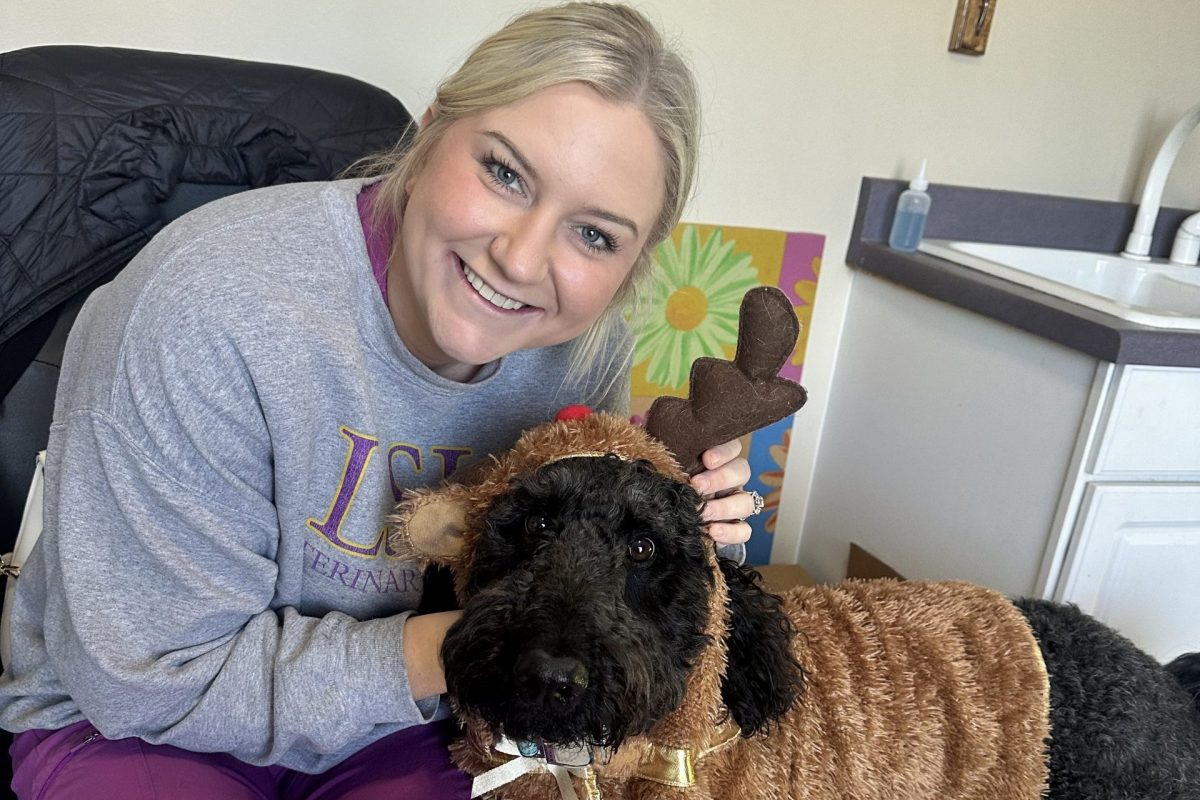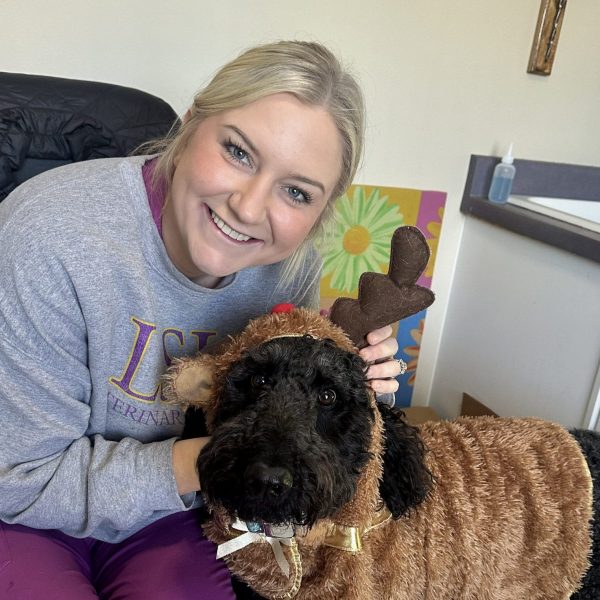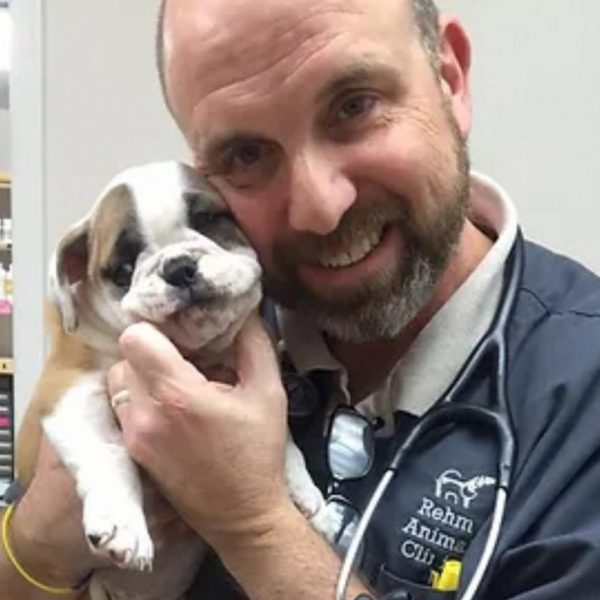Hope you’re having a lovely day filled with flowers, chocolates, and definitely lots of hearts, especially little furry ones!
Speaking of hearts, The Furry Godmother has a Valentine’s gift for you—a brand new vet spotlight article!
This month, we’re featuring the amazing Dr. Bailey Wineski with Jubilee Pet Hospital in Daphne. Dr. Wineski is a Mississippi native and a 2021 graduate of LSU’s College of Veterinary Medicine. She emphasizes preventative care in her practice, and she tells us prevention is everything when it comes to protecting your pets from heartworm.
Don’t let heartworms give your pet a broken heart this Valentine’s Day!
Heartworms, scientifically known as Dirofilaria immitis, are parasitic worms that primarily affect dogs, but can also infect cats and other mammals. These worms are transmitted through the bite of infected mosquitoes, making them a significant concern in many regions, especially those with warm, humid climates- like ours! Whether your pet is mostly inside or outside, you should be concerned for their risk of being infected.
Life Cycle of Heartworms:
The life cycle of heartworms begins when a mosquito bites an infected animal, ingesting microfilariae (the larval form of heartworms) present in the bloodstream. Inside the mosquito, these larvae develop into an infective form, which can then be transmitted to another animal when the mosquito bites again. Once inside the new host, the larvae migrate to the heart and lungs, where they grow into adult worms over several months.Adult heartworms can reach lengths of up to a foot and live for several years. They reside primarily in the heart and pulmonary arteries, leading to significant health issues.
Symptoms of Heartworm Infection
Symptoms of heartworm disease can vary depending on the severity of the infection and may take months to manifest. Common signs include:– Coughing
– Lethargy
– Difficulty breathing
– Weight loss
– Swelling in the abdomenIn advanced cases, the condition can lead to congestive heart failure and even death.
Prevention and Treatment
Preventing heartworm infection is much easier and more effective than treating an established infection. For pet owners, prevention is the best strategy against heartworm disease. Here are some key points to remember:– **Monthly Preventives:** Administering veterinarian-recommended heartworm preventives monthly is crucial. These medications are highly effective and should be given year-round.
– **Regular Testing:** Annual testing for heartworm is recommended, even for pets on preventive medication, as no preventive is 100% effective.
– **Mosquito Control:** Reducing mosquito exposure around your home can help minimize the risk of heartworm infection. This includes removing standing water, using mosquito repellents, and keeping pets indoors during peak mosquito activity times.
If a pet is diagnosed with heartworm disease, treatment options are available, but they can be complex and potentially risky. The most common treatment involves administering a series of injections to kill the adult worms, followed by a period of restricted activity to allow the pet to recover.
Conclusion
Heartworms pose a serious threat to the health of pets, but with proper prevention and care, they can be effectively managed. Pet owners should consult with their veterinarians to establish a heartworm prevention plan tailored to their pet’s needs and environment. Regular check-ups and awareness can help protect pets from this hidden danger, ensuring they lead healthy and happy lives.
Bailey Wineski, DVM
The doctors at Jubilee Pet Hospital serve the Daphne area with state-of-the-art medicine with a compassionate, personal touch. Jubilee doctors and staff make sure clients never feel rushed, addressing all of your concerns.
Reach out today at Jubilee Pet Hospital
The Furry Godmother thanks Dr. Wineski for helping keep all of our fur babies happy and healthy! Happy Valentine’s Day from The Furry Godmother Pet Sitting~ we’re there when you can’t be!






